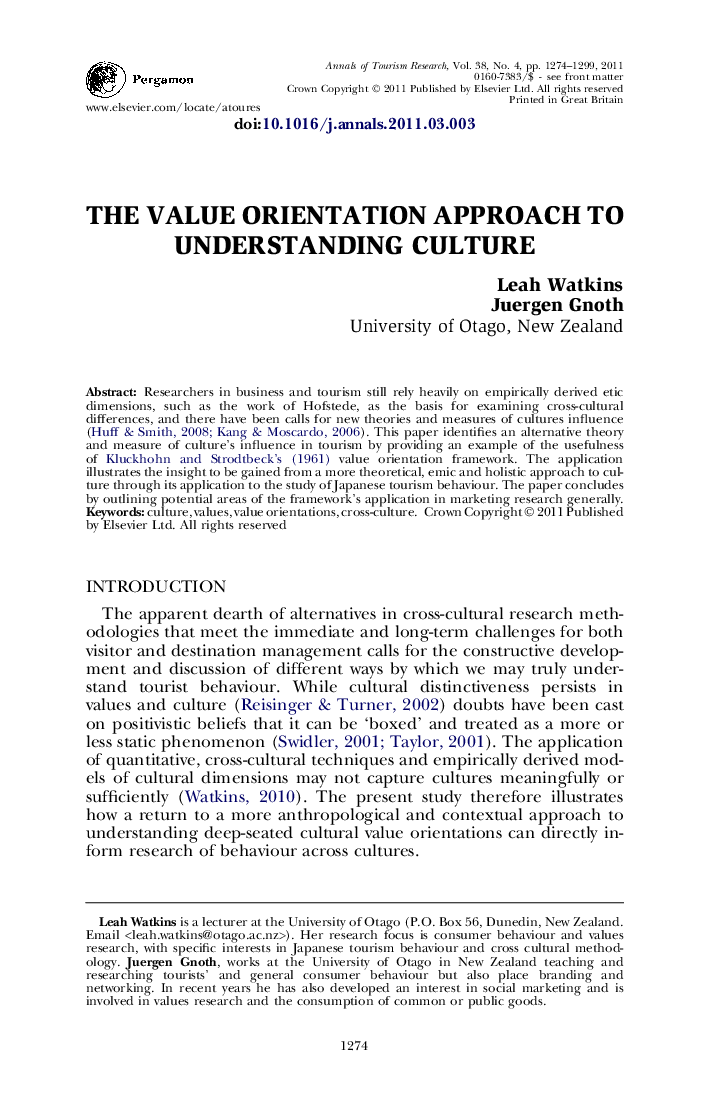| Article ID | Journal | Published Year | Pages | File Type |
|---|---|---|---|---|
| 1007529 | Annals of Tourism Research | 2011 | 26 Pages |
Researchers in business and tourism still rely heavily on empirically derived etic dimensions, such as the work of Hofstede, as the basis for examining cross-cultural differences, and there have been calls for new theories and measures of cultures influence (Huff and Smith, 2008 and Kang and Moscardo, 2006). This paper identifies an alternative theory and measure of culture’s influence in tourism by providing an example of the usefulness of Kluckhohn and Strodtbeck’s (1961) value orientation framework. The application illustrates the insight to be gained from a more theoretical, emic and holistic approach to culture through its application to the study of Japanese tourism behaviour. The paper concludes by outlining potential areas of the framework’s application in marketing research generally.
► The paper identifies an alternative theory and measure of culture’s influence on tourism experiences. ► The paper provides a holistic, coherent and insightful understanding of the core cultural factors influencing Japanese tourism behaviour. ► The theoretical contribution of this paper is to propose a model for conceptualising the relationship between culture, values and consumer behaviour.Highlights are 3–5 bullet points, no more than 85 characters per bullet point. Please provide it in correct format. For more information, see www.elsevier.com/highlights.
